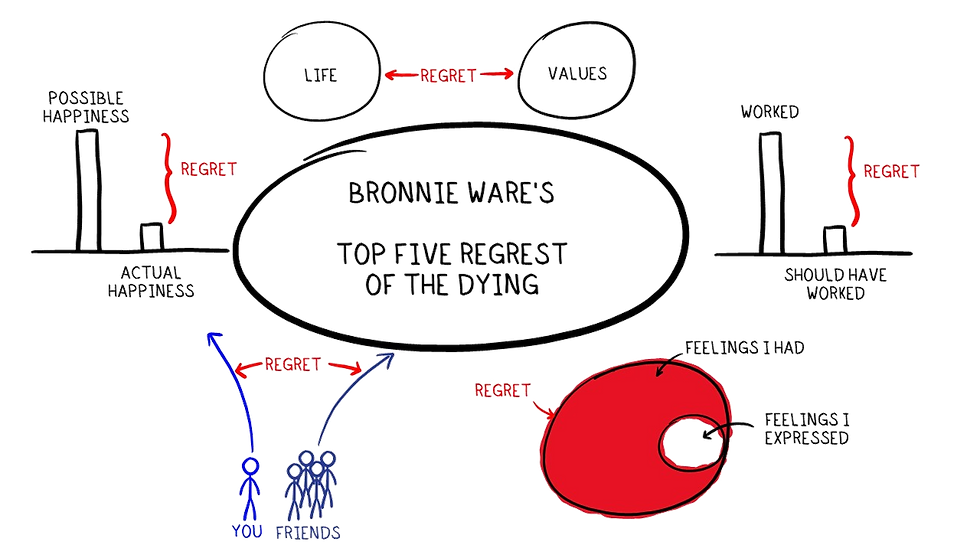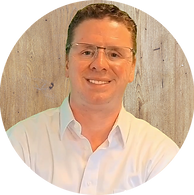WHAT'S THE MONEY FOR?
- Derek Hagen

- Apr 18, 2024
- 4 min read

❝Those who have a why to live can bear almost any how.❞ -Friedrich Nietzsche
Map apps, like Google Maps, let us enter a destination and then see directions to where we want to go. If we make a wrong turn or otherwise get distracted, the app redirects us back to where we told it we wanted to go.
When people first learn to be more mindful through mindfulness meditation, they learn to focus their attention on an anchor like their breath. When people inevitably get distracted by thoughts, they can redirect their attention back to their breath.
These are silly examples of how a beacon, North Star, or other flag in the ground direct us toward where we want to go, but the idea is solid. Understanding money's role in your life and using a Financial Purpose Statement can help you guide your financial decisions toward a meaningful life.
CHOOSE YOUR REFERENCE POINT
Having a beacon, anchor, or other flag in the ground gives us something to redirect us if we get distracted or need help remembering what's important to us.
Without that direction, it's easy to fall into the trap of looking around and seeing what other people are working towards. We do what we think we're supposed to do based on what those around us are doing. Then, we use that as the benchmark of success.
The problem is, if we use social comparison as our benchmark, we'll never be content or have enough.

Comparing ourselves to others is tricky because we know exactly what it's like to be us. We feel everything, and we know how much stress we feel.

We can't experience what other people experience. Other people's stress needs to be communicated to us somehow. Even if it's perfectly communicated, we still don't know what it feels like. And, it won't be perfectly communicated because people tend not to talk about their stress, especially when it's about money.
We simply can't know the stress other people experience. And because nobody wears their stress as a badge of honor, it tends to feel like everyone else experiences less stress than we do.

When we see what looks like other people with less stress, we try to keep up with those Joneses. Social comparison takes over, and we compare ourselves to those who have more than us. Thus, we perpetually feel like we don't have enough or aren't good enough.

Having a beacon to keep us aligned gives us a chance to take a step back and feel grateful for what we have, who we are, and where we want to go.

LIFE IS FINITE
People who have a near-death experience have a tendency to reexamine their lives. The near-death experience reminds us that life is finite, something we tend to forget.
We don't need to have a near-death experience to keep the finite nature of life in mind. Let's draw a circle for each year of life you'll live.

We can arrange these in rows of ten, representing a decade. We can arrange nine rows to create a 90-year life. Of course, we aren't guaranteed 90 years, and certainly not 90 good years.
Yet, seeing all the years you might get laid out in front of you can give the same sense of urgency as having a near-death experience.
This can be especially true once you realize that you've lived a lot of these circles already!

All of this leads to potential regrets. Author Bronnie Ware wrote a book called The Top Five Regrets of the Dying after working as an end-of-life caregiver. She had many conversations with people on their deathbeds and realized that 1) most people regretted some aspect of their life and 2) all those regrets tended to fall into five categories.
I wish I lived a life that was true to myself instead of one others expected of me.
I wish I didn't work so hard.
I wish I had the courage to express myself.
I wish I stayed in touch with my friends.
I wish I let myself be happier.
She wrote the book to help people like us understand what regrets people are most likely to experience while we have the time to do something about it.

UNDERSTAND YOUR PERSONAL VALUES
Notably absent from this list of regrets is buying more stuff or spending more time with our money.

We tend to judge our lives through the lens of our personal values. Our values shape how we see the world. They are what we use to judge right and wrong, good and bad, and so on.

Thus, taking the time to understand our values is important. By understanding what we value, we can become more conscious of how we use our resources - our money, time, and energy.
Understanding your values is the first step toward determining money's role in your life.

CRAFT YOUR FINANCIAL PURPOSE STATEMENT
Money's role in your life is called your financial purpose. In other words, money's purpose in your life.
Going through the process of understanding what's important to you and what you want money to do for you allows you to distill your values and aspirations into a simple statement - a Financial Purpose Statement.
Your Financial Purpose Statement acts as a mantra you can use to filter your use of money.

By defining money's role in your life, you give yourself permission to spend money in ways that align with what's important to you. Additionally, it allows you to cut out financial decisions that don't actually matter to you. It gives you confidence in your financial decisions.

Take some time to uncover your values and use that information to determine money's role in your life. Craft a Financial Purpose Statement and use it everywhere. Use it to live life on purpose.
You get one life; live intentionally.
If you know someone else who would benefit from reading this, please share it with them. Spread the word, if you think there's a word to spread.
To share via text, social media, or email, simply copy and paste the following link:

Subscribe to Meaningful Money
Thanks for reading. If you found value in this article, consider subscribing. Each week I send out a new post with personal stories and simple drawings. It's free, and there's no spam.
REFERENCES AND INFLUENCES
Ariely, Dan & Jeff Kreisler: Dollars and Sense Burkeman, Oliver: Four Thousand Weeks Hagen, Derek: Money’s Purpose in Your Life Hagen, Derek: Your Money, Your Values, and Your Life Kitces.com: Using a Financial Purpose Statement to Guide Mindful Spending Decisions
Klontz, Brad & Ted Klontz: Mind Over Money McKay, Matthew, John Forsyth, and Georg Eifert: Your Life on Purpose Robin, Vicki: Your Money or Your Life Sinek, Simon: Start With Why Sinek, Simon, David Mead & Peter Docker: Find Your Why Wallace, David Foster: This is Water Ware, Bronnie: The Top Five Regrets of the Dying Yalom, Irvin: Staring at the Sun


















